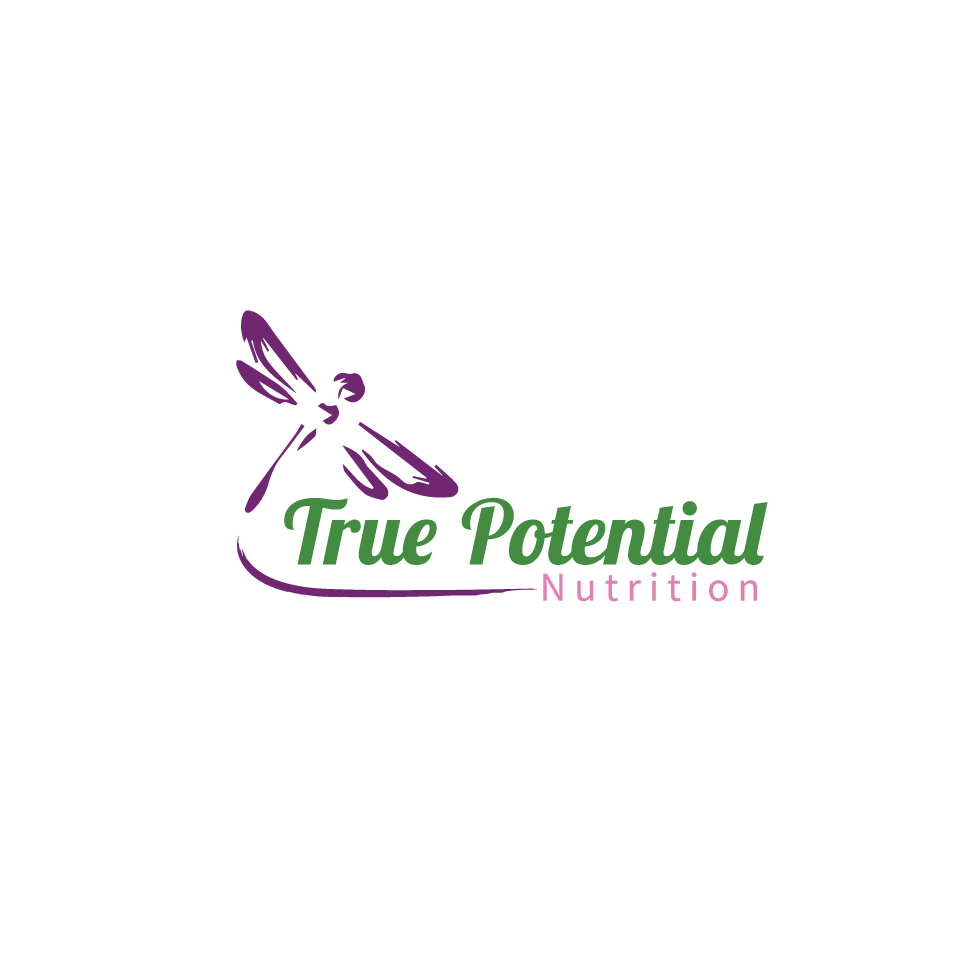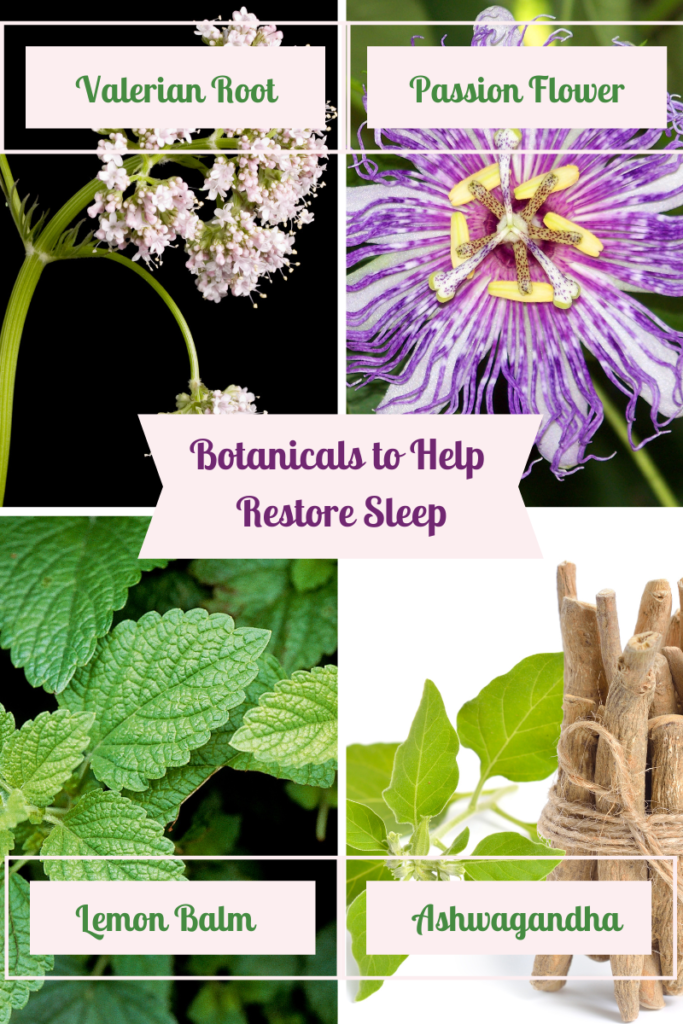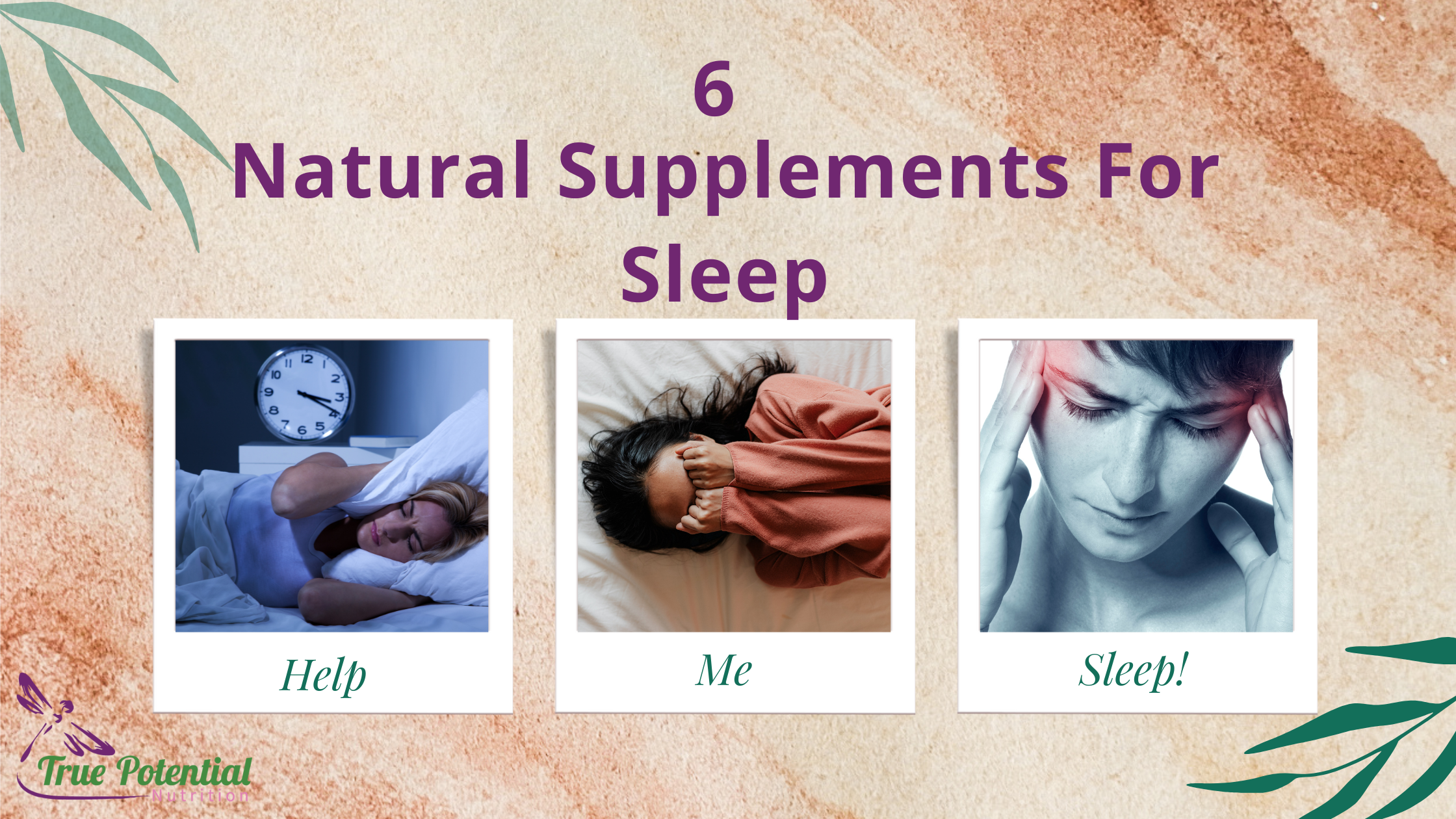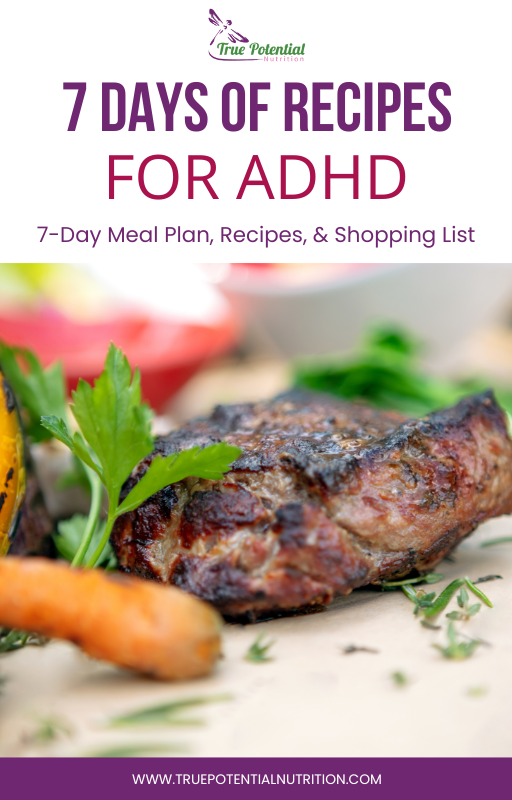By Danielle MacDowell

Table of Contents
Sleep. We all need it, yet many of us are fighting to get enough of it. With the everyday demands and stressors that we are continuously facing, it can be hard to peacefully rest our heads on our pillows at night for true unadulterated shut eye.
If any of the above resonates with you, you are not alone.
Approximately 50% of the United States population have insomnia-related complaints. [1] With ½ of our nation getting inadequate sleep, there is serious cause for concern, as lack of sleep is related to all-cause mortality, increased risk of infection, and increased susceptibility to chronic inflammatory disease. [2]
Not only does inadequate sleep put an individual’s overall health in jeopardy, it can also greatly impair a person’s quality of life, cognitive performance, and emotional wellbeing.
Fortunately, even if sleep feels like a lost cause right now, there are many things that you can do to reclaim your sleep. This can be done through behavior change and also through the use of botanical supplementation. For the sake of today’s conversation, we are going to focus on supplementation.
So, read on to learn about 6 natural remedies you can use for sleep.
Sleep Supplement # 1: Valerian Root (Valeriana Officinalis)
For thousands of years, valerian root has been a coveted botanical for sleep. It is also becoming increasingly popular for its use as an anxiolytic (anxiety-relief) agent.
Valerian root acts upon Gamma-Aminobutyric Acid (GABA), which is your body’s calming neurotransmitter.
While there are several supplements on the market that impact GABA, valerian, valerian is particularly powerful. This is because it increases GABA activity through two different mechanisms, at the level of the receptors and at the level of the enzymes.
Research has shown that Valerian is similar to that of benzodiazepine, [3] a pharmaceutical used for sleep and anxiety. This is likely because both of these calming agents increase GABA activity. Similar to valerian, benzodiazepine interacts with GABA receptors. While both compounds exert sedative effects, valerian may have a less negative impact on the body. [4]
Real World Tip: Take 2 hours before bed. Also, it is important to note that it can take up to 4-weeks to take effect. So, don’t give up hope if it doesn’t work right away.
Sleep Supplement # 2: Melatonin
Melatonin is a hormone that is responsible for controlling our circadian rhythm (a.k.a. our sleep wake cycles). When our environment shifts from light to dark, our brain gets signals from our eyes that it is time to switch gears from wakefulness to sleepiness. However, in our technological age, many of us do not get these signals. This is because our brain cannot discriminate between sunlight and blue light. So, when the sun goes down and we continue to play video games, scroll through Tik Tok videos, or watch our favorite television show, we confuse our brain’s circadian signaling. Rather then ramping up melatonin production, our brain responds to the blue light by down regulating our melatonin production, which greatly impacts our ability to get a restful night’s sleep.
Causes of Low Melatonin
Blue light exposure is not the only thing to blame for our lack of melatonin production, age is also a culprit. With age, melatonin levels naturally decline. Also, certain disease states, such as mood disorders, cancer, and type 2 diabetes have also been shown to be associated with lower levels of melatonin. [5] So, while there is no causal evidence, people who have any of the above conditions, may need to be particular mindful about melatonin production.
How Much Melatonin Should You Take?
Three milligrams of melatonin is the industry standard and is considered to be the therapeutic dosage. This comes as a surprise to many people, as many supplements on the market today have well over the 3 milligrams.
Using high levels of melatonin can be problematic for a number of reasons. For one, as you increase the amount of melatonin consumed, you also increase your chances of experiencing side effects, including gastrointestinal issues, nausea, and headache.[6] So, as with all supplements, consult your health care provider before usage and use with caution.
While it is nice to have the option to supplement with melatonin, it is important to not only be mindful about the dosing, but also the duration. [7] Melatonin has been deemed “likely safe” when used for 6 months or less. When I think of melatonin usage, I consider it to be a band-aid as opposed to a permanent solution.
As with most things that are synthesized by the body, striving to increase melatonin production naturally is typically going to be the best course of action. In the case of melatonin production, this can be done by adopting various sleep hygiene and lifestyle practices, such as avoiding blue light at night and getting outside in the daylight first thing in the morning. More on this in another blog… so stay tuned!
Pro Tip: If you are going to go the supplement route, opt for a time-release melatonin and take 30-minutes before bedtime.
Sleep Supplement # 3: Magnesium
Magnesium has been shown to relax and calm the nervous system, which is why it is considered the “calming mineral.” Given this moniker, it is not surprising that magnesium has been shown to positively impact sleep.
Magnesium has been shown to statistically:
- Increase melatonin levels
- Decrease sleep latency
- Decrease cortisol concentration [8]
It is estimated that at least 40% of Americans are deficient in magnesium. Considering this mineral is involved in over 300 enzymatic reactions in the body, increasing your magnesium intake is bound to have far-reaching benefits that span beyond your sleep. This can be done through supplements and/or foods.
Magnesium-containing foods include:
- Fish & Seafood(e.g. halibut, oysters, cod)
- Cooked Legumes
- Green leafy vegetables (e.g. spinach)
- Nuts & Seeds
- Dark chocolate (the higher the percentage of cacao the better!)
- Dairy
- Whole-grains
Barriers to Magnesium Absorption
Unfortunately, simply eating magnesium-rich foods may not be the answer to your sleep challenges. While there is an abundance of ways to obtain magnesium, absorbing the magnesium can be a challenge for some people.
There are several barriers that interfere with the body’s ability to absorb the magnesium, including:
- Phytic acid
- Competing minerals, such as calcium
- Alcohol
- Low stomach acid
- Medications.
For these reasons, people who struggle with sleep and anxiety may consider a supplemental option. Being that there are many types of magnesium salts on the market today, this can be quite a daunting task. So, let me simplify things for you with my Real-World Tip below.

Sleep Supplement # 4: Ashwaghanda (Withania Somnifera)
Ashwagandha (Withania somnifera L. Dunal) has a long standing history in Ayurvedic medicine. Although it was originally touted for its uses in vitality, strength, and general well-being, research has shown it also has anti-inflammatory, antioxidant, anticancer, immunomodulatory, and anxiolytic properties as well. [9]
Ashwagandha’s anxiolytic properties are particularly notable, as they have been shown in both animal and human studies. Not only has ashwagandha proven to reduce anxiety, but it has been shown to decrease anxiety-related health outcomes, such as inflammation, blood pressure, and cortisol response. For these reasons, this herb may also assist in helping you get a good night’s sleep.
Sleep Supplement # 5: Lemon Balm (Melissa Officinalis)
Similar to valerian, lemon balm also acts on our GABA system and has been shown to improve sleep and anxiety.
Lemon balm is best known for its impact on stress and has been used as an independent agent to help the body and mind combat the effects of stress.
When used as a sleep aid, it is best to use it in combination with other botanicals, including valerian root, chamomile, and hops.
Sleep Supplement # 6: Passionflower (Passiflora Incarnate)
Like valerian and lemon balm, passionflower impacts GABA levels in the brain. Research suggests that passionflower can prevent GABA from be taken up into the synapses. [10] As a result of this synaptic inhibition, more GABA is present in the brain and able to exert calming effects in the body. [10]
In order to reap the full benefit of passionflower on sleep and anxiety, it appears that combining it with other botanicals, such as valerian and hops, provides the most benefit.
Real-World Tip: Look for supplements that contain at least 1.5% flavonoids to get the therapeutic dosing.
Should I take GABA for sleep?
In short, probably not.
At this point, you likely know that GABA is our calming neurotransmitter. It has an inhibitory effect on the body, which can be particularly beneficial when we are wound up, anxious, or unable to sleep.
We have a strong presence of GABA receptors in the thalamus, the part of the brain responsible for our sleep and wake cycles. We know that taking herbs that increase GABA in our brain helps with sleep and anxiety. So, naturally, it makes sense to be curious about supplemental GABA on sleep.
At this point you may be questioning if you should go straight to the source.
The answer is likely no.
Unfortunately, increasing GABA in the brain through the use of a GABA supplement is not that simple.
While some companies promote the use of GABA supplementation as a singular agent for sleep, this may not be the best way to spend your money.
Currently, the research shows that GABA does not cross the blood brain barrier (BBB). In other words, GABA does not have a way to get to the brain. For this reason, using botanicals, such as valerian, lemon balm, and passion flower, which have the ability to increase levels of GABA in the brain, appear to be a better option.
Final Thoughts and Main Takeaways
Approximately 50% of the United States population have insomnia-related complaints. [1] With ½ of our nation getting inadequate sleep, there is serious cause for concern, as lack of sleep is related to all-cause mortality, increased risk of infection, and increased susceptibility to chronic inflammatory disease. [2]
There are a number of natural options to help individuals get a good night sleep, including valerian, melatonin, magnesium, ashwagandha, lemon balm, and passion flower. Many of these supplements act on the body’s gabaminergic system to exert sedative and anxiolytic effects, which has encouraged a lot of interest in using GABA as a direct agent for sleep. In spite of the potential, due to its inability to cross the blood brain barrier, it does not appear to be the best natural remedy for sleep.
While botanical aids can be a powerful tool in helping us get some good night zzzs, ultimately, getting to the root cause of one’s sleep problems is going to be the most important step in the quest to overcome sleep challenges.
Words of Caution Before Supplement Usage:
**Due to bio-individuality, medications, and conditions, it is important to note that these supplements are not a good option for everyone.
**As always, before making any changes to your dietary or supplement routine, make sure that you consult with your physician or health care provider.**
- Cleveland Clinic. Insomnia. https://my.clevelandclinic.org/health/diseases/12119-insomnia. Updated on October 15, 2020. Accessed on December 9, 2020.
- Irwin MR, Olmstead R, Carroll JE. Sleep Disturbance, Sleep Duration, and Inflammation: A Systematic Review and Meta-Analysis of Cohort Studies and Experimental Sleep Deprivation. Biol Psychiatry. 2016;80(1):40-52. doi:10.1016/j.biopsych.2015.05.014
- Schulz, Hänsel, Blumenthal, Tyler. Rational Phytotherapy: A Reference Guide for Physicians and Pharmacists, 5th ed. 2004: Springer.
- Tammadon MR, Nobahar M, Hydarinia-Naieni Z, Ebrahimian A, Ghorbani R, Vafaei AA. The Effects of Valerian on Sleep Quality, Depression, and State Anxiety in Hemodialysis Patients: A Randomized, Double-blind, Crossover Clinical Trial. Oman Med J. 2021;36(2):e255. Published 2021 Mar 31. doi:10.5001/omj.2021.56
- Hardeland R. Neurobiology, pathophysiology, and treatment of melatonin deficiency and dysfunction. ScientificWorldJournal. 2012;2012:640389. doi:10.1100/2012/640389
- Baur B. Is melatonin a helpful sleep aid — and what should I know about melatonin side effects? https://www.mayoclinic.org/healthy-lifestyle/adult-health/expert-answers/melatonin-side-effects/faq-20057874. Updated on October 28, 2022. Accessed on December 11, 2022.
- Natural Medicines. Melatonin. https://naturalmedicines-therapeuticresearch-com.libproxy.bridgeport.edu/databases/food,-herbs-supplements/professional.aspx?productid=940. Updated on 10/13/22. Accessed on 12/12/22.
- Abbasi B, Kimiagar M, Sadeghniiat K, Shirazi MM, Hedayati M, Rashidkhani B. The effect of magnesium supplementation on primary insomnia in elderly: A double-blind placebo-controlled clinical trial. J Res Med Sci. 2012;17(12):1161-1169.
- Lopresti AL, Smith SJ, Malvi H, Kodgule R. An investigation into the stress-relieving and pharmacological actions of an ashwagandha (Withania somnifera) extract: A randomized, double-blind, placebo-controlled study. Medicine (Baltimore). 2019;98(37):e17186. doi:10.1097/MD.0000000000017186
- Natural Medicines. Passion flower. https://naturalmedicines-therapeuticresearch-com.libproxy.bridgeport.edu/databases/food,-herbs-supplements/professional.aspx?productid=871#effectiveness. Updated on 10/23/22. Accessed on 12/8/22.


